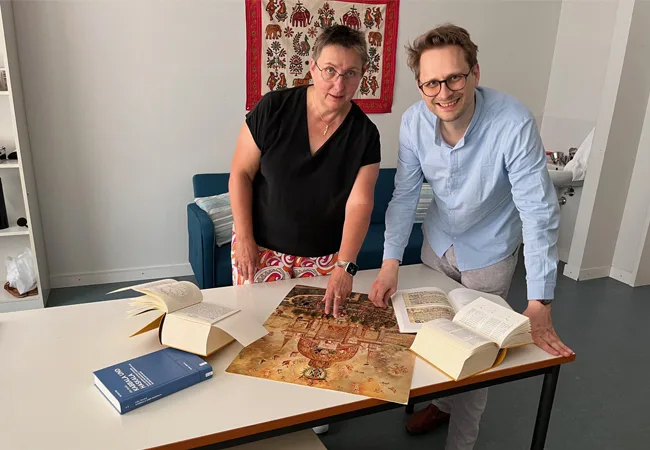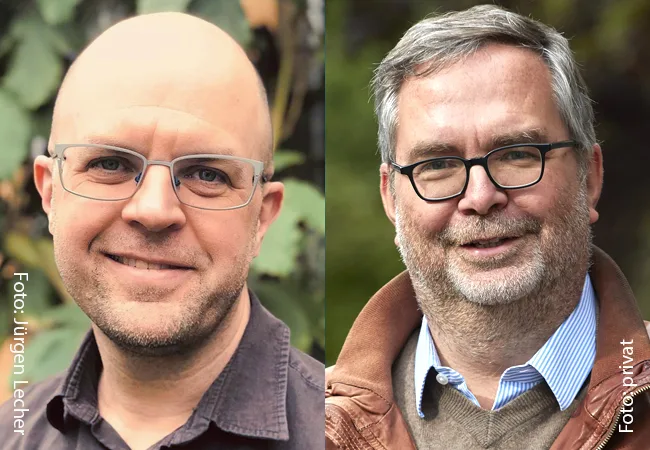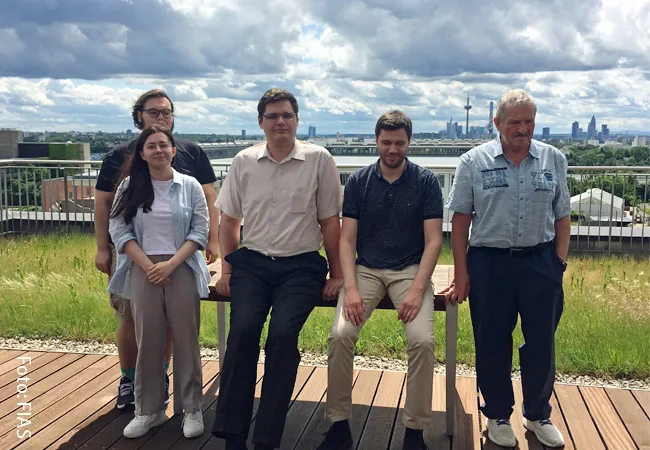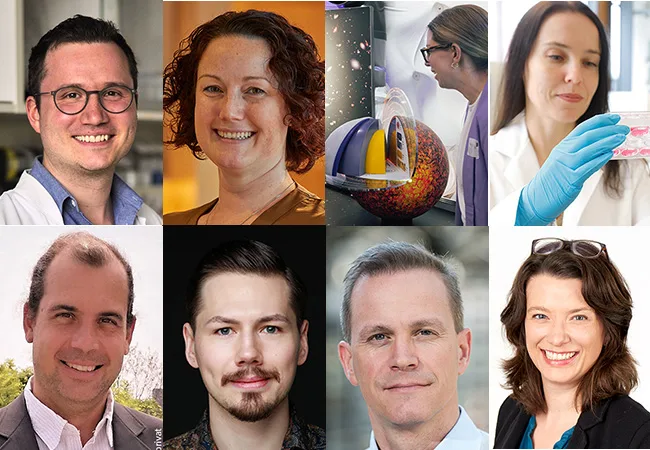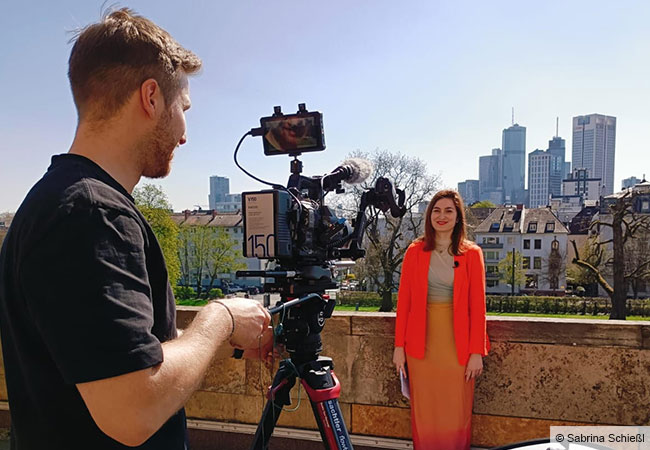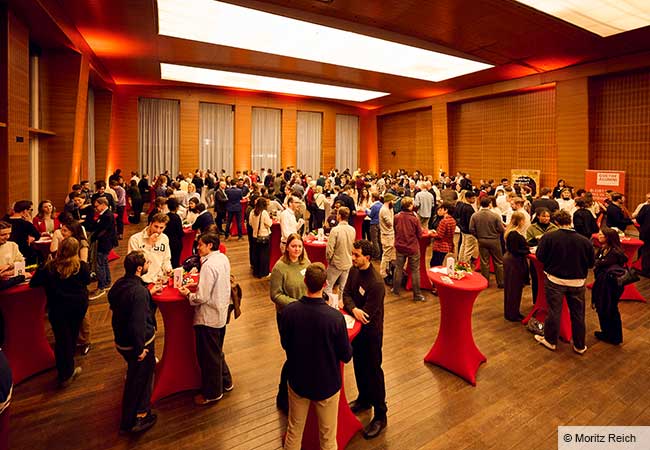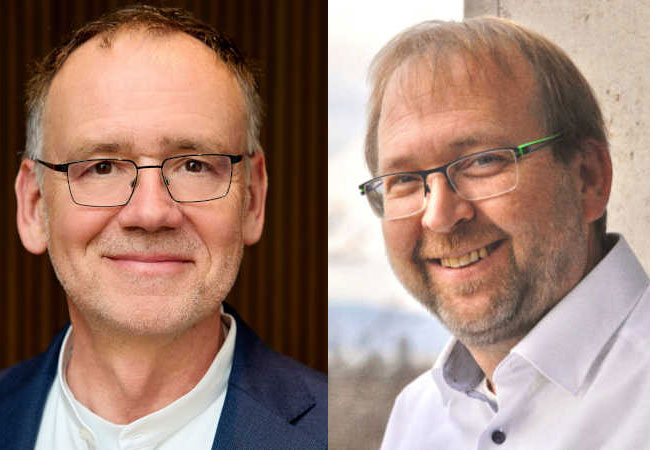Goethe University Frankfurt is applying for the upcoming round of the Excellence Strategy of the German federal and state governments with four new clusters on the following research topics: Trust in conflict (ConTrust), infection and inflammation (EMTHERA), the origin of heavy chemical elements (ELEMENTS), and cellular architectures (SCALE). These applications bring together the competencies and pioneering ideas of Goethe University Frankfurt with those of colleagues in the Rhine-Main Universities (RMU) alliance and additional partners from four major non-university research organizations. The Cluster of Excellence “Cardio-Pulmonary Institute” (CPI), first set up in 2019, will submit a full proposal next year.
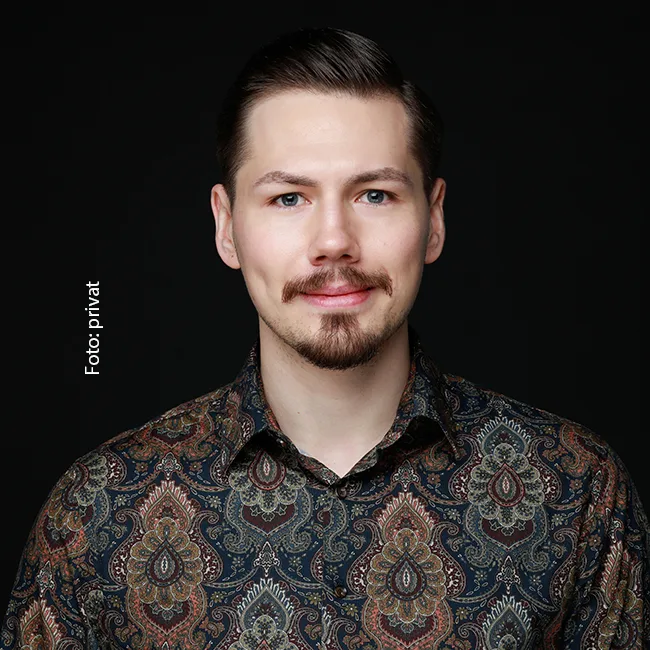
„A curse and a blessing at the same time.“ That is Finn-Lauritz Schmidt’s response when asked about the topic of his research. The working title of his doctoral thesis is „Grund und Grenzen strafrechtlichen Klimaschutzes“ [Reasons for and Limits of Climate Protection under Criminal Law]. The importance of climate and climate protection can hardly be overestimated, which is also why they are the subject of ubiquitous discussion, he says. However, he adds that dynamic developments also mean positions and arguments are constantly revised. Finn-Lauritz Schmidt studied law at Goethe University Frankfurt, where – a few semesters into his studies – he became a student assistant at the chair of Prof. Christoph Burchardt. Today he works here as a research assistant and is also active in the ConTrust cluster initiative. Schmidt became interested in criminal law at a very early stage in his studies, and has remained true to this passion since.
Shortly before taking his exams, he read a paper on criminal law that described „climate criminal law“ as the „legal concept of the future“. It sparked a lasting interest for the subject. „As a salient tool for social means of control, law has a special role to play when it comes to addressing climate change. So when asking about the rationale for and limits of a criminal law on climate protection, I’m asking about the legality and legitimacy of punitive behavioral rules.“ In very general terms, he says, the issue revolves around the role of criminal law in climate protection. For now, Schmidt explains, the term „climate protection criminal law“ is still best put in quotation marks, since there is no closed corpus of constituent norms yet. „As I understand it, a criminal law on climate protection refers to all norms of future law that criminalize illegal, particularly socially harmful climate-damaging behavior, like massive greenhouse gas emissions or the destruction of forests, wetlands and bodies of water. Beyond directly climate-damaging behaviors, behaviors that have an indirect climate-damaging effect, such as greenwashing, certainly also merit consideration.“
Schmidt emphasizes that this approach is not accompanied by a call for rigid social control in the sense of a state of ecological emergency. Rather, he points towards dangers that can arise in a newly to be created criminal law on climate protection. In the interview, he refers to symbolic criminal law, a category critical of criminal law that was significantly elaborated by the Frankfurt School of criminal law. „This category alludes to the fact that applying criminal law can also complicate or even prevent deeper conflict transformation. It can result in societal self-appeasement and at the same time obscure the need for profound changes in society’s relations to nature that criminal law cannot address at all.“
With regard to the role of law, Schmidt emphasizes that it is critical that environmental law become more effective, pointing out that the fact that a criminal law on climate protection is bound to upstream administrative law is referred to as “administrative accessoriness”. That is why such a law cannot achieve anything on its own, but can only help prevent that which is already illegal from happening in the first place.
The climate crisis is also a crisis of order
The climate crisis should not be understood solely as an ecological crisis, Schmidt says, but also as a crisis of order and an expression of dysfunctional social relations with nature. Diametrically contradictory social development paths – which range from denying climate change to predicting the path to climate catastrophe – are a reflection of massive social conflicts. The connection between his research and ConTrust, Schmidt says, lies in the question of under what circumstances coercion and prohibition can play a productive role in managing societal conflicts: „Criminal law was once aptly described as a “freedom-conflict compactor”. And it does, in fact, provide information in a special way about what a society considers particularly socially harmful and also wants to disapprove of through state punishment.“
Taking this analysis further, Schmidt says a criminal law on climate protection now even has a value-progressive effect: „In a way, such a criminal law is provided with a normative surplus and is supposed to represent norms and values that are not yet necessarily anchored in reality.” He is skeptical about whether this will bear fruit. „In times of crisis especially – as the Corona pandemic has shown – calls for criminal law, prohibition and coercion also reflect the longing for the authority of a strong, orienting state. Even if climate change will certainly require sacrifices in the future, I would also like to show in my research how important positive narratives are for social transformation. This is precisely what criminal law does not convey.“
Fake news and disinformation in global politics
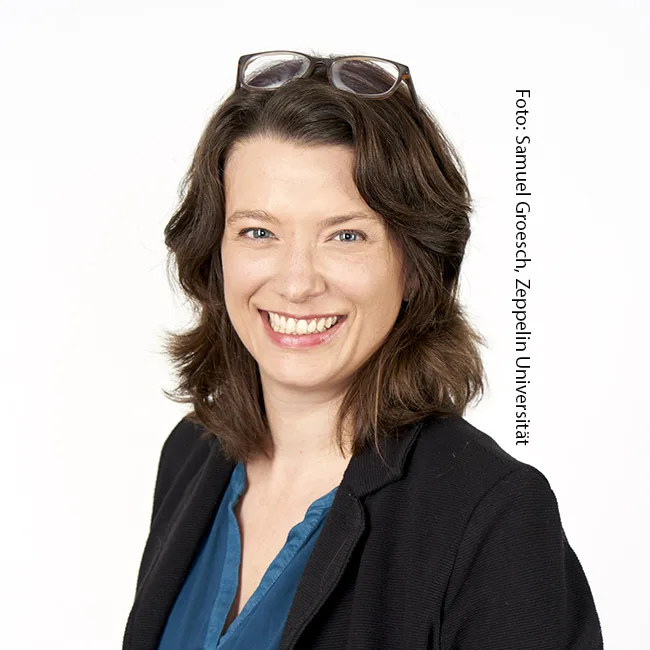
Over the past 20 years, one crisis has literally followed another: From the financial crisis to the Corona pandemic, to the war on Ukraine, the world now finds itself in a permanent global climate crisis. This backdrop makes it that much more likely for conflicts to emerge – at the national as well as the international level. „My research has always focused on understanding how the system of global governance changes over time, adapts or shows resilience in the face of strife and questioning,“ says Lisbeth Zimmermann, a professor of political science specializing in international institutions and peace processes at Goethe University Frankfurt and a Private Investigator (PI) at ConTrust. How can one actually research the increase in challenges faced by international organizations? „On the one hand we have the trend of the last two decades especially, of trying to collect much more quantitative data than before on global governance: on resolutions, state contributions to the discussions, reports, protocols, and much more. Using new quantitative methods allows us to analyze large amounts of written material much better than before.“ On the other hand, she explains, traditional qualitative methods are also used to closely monitor political processes, including by means of participant observations at meetings and negotiations. Zimmermann is currently working on a large project investigating the transnational New Right and its influence on international organizations.
When is new knowledge trustworthy?
The interface to the cluster initiative ConTrust consists of the question of when a productive moment – and thus new trust – can emerge from dispute and conflict. „ConTrust addresses trust on very different levels: within political conflicts and conflicts over socioeconomic distribution, but also within conflicts over proper knowledge and expertise. The latter subfield is the one I’m involved in at ConTrust,“ Zimmermann explains, adding that it deals with epistemic conflicts, i.e. conflicts about when new knowledge becomes trustworthy. „This is an extremely exciting area, which I would like to explore more, not least because international organizations consider fake news and targeted disinformation to be one of their main problems. Seeing their expert knowledge increasingly questioned, organizations like the OECD or WHO have to think about what institutional innovations they need to make to be considered as authorities once again. How can they present themselves on social media or through institutional innovations, for instance, in order to be perceived as close to the people?“
Zimmermann also sees another possible reason for the difficulties international organizations experience when it comes to their authority and expertise. „Today, it is increasingly rare for trained diplomats to conduct negotiations in these organizations; instead, that job frequently falls upon specialists from ministries or research institutes. The widespread expectation is that experienced individuals will conduct international negotiations, and that the political aspect of their work will therefore take a back seat. In principle, however, this is far from evident: after all, when participants with very different expertise from different fields come together in a negotiation, what role does their respective knowledge ultimately play? Put another way: How differently do people with different ‚truths‘ look at the world and its conflicts? When a climate expert meets an economic expert, how can common knowledge and common solutions emerge? And asked from ConTrust’s perspective, how can trust emerge from this?“
ConTrust
Trust is often understood as the opposite of conflict. The researchers of the cluster initiative „ConTrust: Trust in Conflict – Political Life under Conditions of Uncertainty“, on the other hand, assume that in modern societies, trust not only has to prove itself in conflicts and can thus be consolidated, but that under certain conditions it emerges there in the first place. At the same time, there exist problematic dynamics in which trust in certain persons or parties fuels or hardens conflicts. For ConTrust, this observation gives rise to the task of illuminating the contexts of trust and conflict to determine the conditions for the successful resolution of social conflicts.
Further information here.



